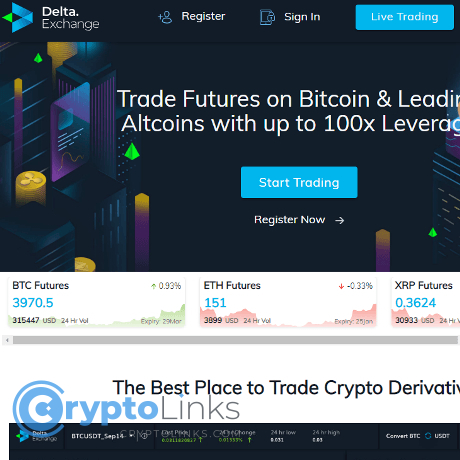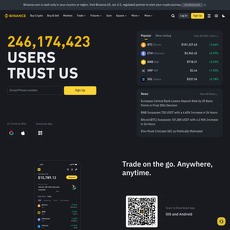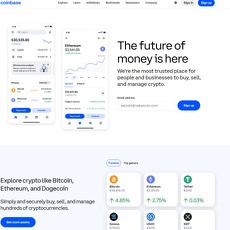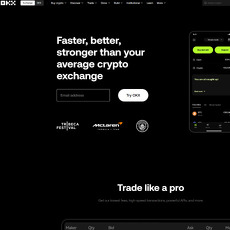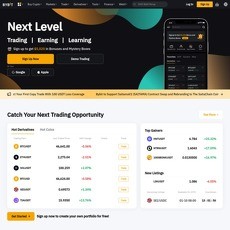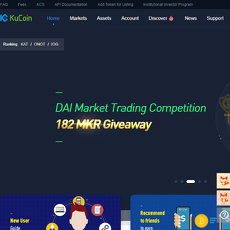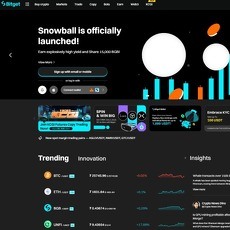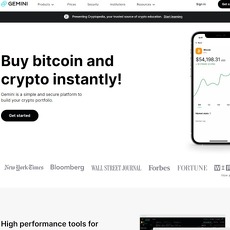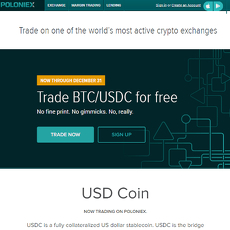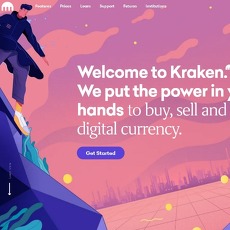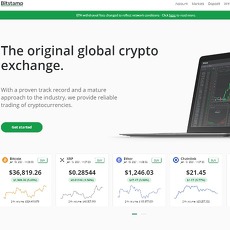Delta.Exchange Review
Delta.Exchange
delta.exchange
Delta.Exchange Review: Is This Crypto Derivatives Platform Worth Your Time?
Are you tired of constantly jumping between crypto exchanges, wondering if you've finally found one that's actually reliable and trustworthy? With dozens of crypto derivatives exchanges popping up lately, choosing where to trade can feel like navigating a minefield—one wrong step, and your crypto trading dreams might go up in smoke.
Common Frustrations for Crypto Traders
Let's face it, crypto trading should be about smart strategy and exciting opportunities—not frustrating technical snags and hidden fees sneaking in and eating up your profits. I've spoken personally to countless traders, and several complaints consistently pop up:
- Sneaky Hidden Fees: Traders often find surprise charges eating into their gains, only discovering them after trades are executed.
- Limited trading pairs: You shouldn't have to juggle multiple platforms just to trade your favorite cryptos.
- Slow executions: When every second counts, sluggish orders won't do—delays often result in missed profits.
- Security concerns: Trusting your crypto assets with an unreliable exchange could potentially leave your entire portfolio at risk.
- Confusing interfaces: Overcomplicated UI can turn even the most experienced traders away, let alone newcomers.
These issues are real headaches for regular traders like you and me. When you place your hard-earned money and your trades on the line, the last thing you deserve is an unpleasant trading experience or unexpected hassles.
Here's What You Can Expect From This Guide
I've crafted this Delta.Exchange review specifically for traders who crave clarity and actionable insights. Without sugarcoating anything, I'll address your burning questions head-on, so by the end, you'll have a clear answer about whether Delta.Exchange is worth trying or if you should move on to other alternatives.
No fluff. No confusion. Just clear, trustworthy guidance from someone who genuinely wants you to succeed in crypto derivatives trading.
Key Questions I'll Answer Clearly
Traders like us like knowing exactly what we're dealing with before trusting any exchange with our assets. Here's what I'll cover:
- Fees: No hidden costs—I'll spell out clearly how Delta.Exchange handles fees.
- Features & Tools: Exactly what trading features are available and how reliable they really are.
- Supported Currencies: Which cryptos and trading pairs Delta.Exchange currently supports (so you'll know immediately if your favorite coins are there).
- Security & Reliability: A transparent look into the safety measures on Delta.Exchange, because peace of mind matters.
- Customer Support Quality: Nobody wants sluggish support when problems arise. I'll share exactly what real users are experiencing.
Ready to confidently determine if Delta.Exchange fits your trading approach or not? Let's answer that crucial first question together first—what exactly is Delta.Exchange, and does their background match your expectations from a crypto derivatives platform?
What is Delta.Exchange? An Easy-to-Understand Overview
If you're like most crypto traders I've spoken to lately, you're probably wondering what makes Delta.Exchange stand out amidst countless other crypto derivative platforms. You've probably heard its name being thrown around trading forums or social media—but what's behind all the hype?
"Trading crypto derivatives should be simple, intuitive, and safe. Delta.Exchange aims precisely at accomplishing that mission."
Delta.Exchange is a specialized cryptocurrency derivatives trading platform built specifically for traders interested in more advanced crypto trading opportunities—like futures, perpetual swaps, and options contracts. In simpler terms, it allows you to trade crypto in a more sophisticated way, making predictions and hedging your bets, whether prices move up, down, or sideways. But where exactly did Delta.Exchange begin, and who's behind this promising platform?
When Did Delta.Exchange Launch and Who Are the Founders?
Launched in 2018, Delta.Exchange arrived on the scene at the perfect time—the crypto derivatives market was budding rapidly, and traders were hungry for exchanges that offered efficient, transparent, and secure ways to trade crypto contracts.
The masterminds behind Delta.Exchange are highly experienced industry veterans who previously held top-notch executive roles at renowned finance and technology firms. Co-founders Pankaj Balani, Jitendra Tokas, and Saurabh Goyal came together with a clear vision: simplify crypto derivatives trading for retail and institutional traders alike, without sacrificing features or security. Unlike many other exchanges with mysterious origins, Delta.Exchange proudly presents its approachable founders who regularly engage with their community across their social media channels.
Their transparency and professional backgrounds have significantly boosted investor confidence. Proven credibility is always essential, particularly in today's crypto space where trustworthiness can quickly make or break an exchange.
What Products and Features Does Delta.Exchange Offer?
Delta.Exchange isn't your average crypto trading post. Instead, it positions itself uniquely by offering traders advanced derivatives products usually reserved for experienced institutional investors. Let's quickly break down the highlights:
- Perpetual Contracts: Popular among traders, these let you speculate on price movements without worrying about expiry dates. You can keep positions open indefinitely, making them highly accessible.
- Crypto Futures: If you prefer contracts with standard expiry dates, Delta.Exchange offers futures contracts on Bitcoin, Ethereum, and many altcoins. Trading futures gives traders predictable timelines for risk management and speculation.
- Crypto Options: Delta.Exchange notably stands out by offering crypto options. Options trading allows users greater flexibility—they can buy insurance-like protections or speculate high-risk opportunities, depending on their personal market outlook.
- Spot Markets and MOVE Contracts: While derivatives are Delta.Exchange's main attraction, it also provides crypto spot trading pairs and unique MOVE contracts—allowing traders to speculate simply on whether prices will move significantly up or down.
Notably, Delta.Exchange has quick order execution speeds and supports leverage, allowing you to amplify your gains (and yes, risks too!). It also includes reliable trading tools, charts, analytics, and detailed guides—valuable whether you're just starting off or a seasoned pro taking a fresh look.
But how easy is it to actually trade on the platform? Can beginners comfortably get on board, or is it reserved only for advanced traders?
If you're curious how trading practically works on Delta.Exchange, stick with me. I'm about to uncover exactly how user-friendly it is, what to expect when you first log in, and whether it genuinely matches the high expectations the exchange sets. Ready to check it out?
How Does Trading on Delta.Exchange Actually Work?
If you're anything like me, before diving into the deep waters of crypto derivatives trading, the first thing you'd want to know is how easy the process will be. Will Delta.Exchange make your trading experience smooth enough, or will it feel like navigating through a complex maze? Let's walk through it together.
Registration and Getting Started
One thing I appreciate about Delta.Exchange is that getting started feels refreshingly straightforward. You don't need any special skills or tech knowledge to set up your account. Simply put, the entire registration takes a few short and sweet steps:
- Hit up the Delta.Exchange homepage and look for the 'Sign Up' button—it's pretty impossible to miss.
- Fill in basic details like your email address, set up a secure password, and confirm your email.
- Identity verification (also known as KYC) follows after signup, which usually just means uploading a quick photo of your ID and a selfie. Yes, I know the selfie might make you cringe, but this small step boosts account security big-time.
- Then comes funding your wallet. Delta.Exchange allows deposits in popular cryptos like Bitcoin (BTC), Ethereum (ETH), and USDT. You can quickly deposit funds from your personal crypto wallet into your Delta.Exchange wallet without any drama.
Voila! You're all set up, and you're officially ready to start trading on Delta.Exchange. The simplicity here stands out from other exchanges I've tried.
Trading Interface and User Experience
"Simplicity is the ultimate sophistication." - Leonardo da Vinci
When you log in and open the platform, you'll immediately notice one thing—Delta.Exchange's interface looks clean, modern, and refreshingly uncluttered. If complicated charts and confusing screens usually intimidate you, you're in for a pleasant surprise here.
- Intuitive Dashboard: Delta.Exchange arranges key trading elements neatly. Price charts, order books, trade history—everything you need is in plain sight without information overload.
- Easy Order Placement: I love how effortless it is to set up market or limit orders. They also have advanced order types like stop-limits for more precise risk management, but even those are laid out clearly, ensuring you won’t accidentally place the wrong trade.
- User-Friendly Navigation: Navigating between futures, perpetual contracts, and options trading feels smooth. No endless clicking around looking for buttons and menus here.
- Beginner-Friendly UI: Even if you've never traded derivatives before, Delta.Exchange's layout guides you naturally. Tooltips and in-platform educational resources mean you don't need to repeatedly Google trading terms.
According to Forbes, exchanges that prioritize clear, intuitive interfaces boost trader satisfaction significantly. After spending considerable time testing Delta.Exchange, I feel it perfectly aligns with user-friendliness—especially for beginners navigating the derivatives space for the first time.
If simplicity combined with practicality appeals to you, then Delta.Exchange will probably put a smile on your face. But now, you're probably wondering: "OK, simple and user-friendly is amazing, but what about hidden fees? Are they lurking in the shadows to surprise me when I least expect it?"
Let's answer that critical question in the next section!
Delta.Exchange Fees: Transparent or Hidden?
When it comes to choosing the right crypto derivatives exchange, fees play a vital role—after all, they affect your overall profits directly. Nobody wants nasty surprises when checking their account balance, right?
With Delta.Exchange, the big question traders frequently ask me is, "Will fees drain my profits? Are Delta.Exchange's charges transparent or lurking in the background?"
I've done the research, carefully checking Delta.Exchange's fee structure. Here's exactly what you need to know—clear, straightforward, without technical overtime.
Are Delta.Exchange Fees Competitive?
Let's start with the good news: Delta.Exchange keeps fees competitive in today's market—especially if you're active in crypto derivatives, like futures, perpetual swaps, or options.
For a quick overview, here's how Delta.Exchange stacks up against competing platforms:
- Maker fees: Typically range from 0.02% to negative rebates (-0.025%) on certain contracts—which can actually earn you money back when providing liquidity.
- Taker fees: Usually between 0.05% and 0.075% per trade, mostly aligned with industry standards.
To put things in perspective, other popular exchanges like Binance Futures and Bybit have similar fee ranges. For instance, Binance Futures charges standard maker fees around 0.02% and taker fees around 0.04% to 0.06%, similarly competitive as Delta.Exchange.
Additionally, Delta.Exchange occasionally runs promotional campaigns or offers trading fee discounts if you hold or pay fees in their native token DETO. If you plan your moves carefully, you can easily shave off extra trading costs—real savings you'll genuinely appreciate.
"Beware of little expenses. A small leak will sink a great ship." — Benjamin Franklin
This quote resonated profoundly with my trading experience. A fraction left unnoticed can snowball into significant losses, right? That's why clarity around exchange fees is absolutely essential.
Is There Any Hidden Fee?
Here's an honest truth for crypto traders everywhere: hidden fees are your worst nightmare. The last language traders like us want to hear is greyed-out fine print sneaking into our wallets.
Luckily, Delta.Exchange is refreshingly transparent about costs and doesn't pose any alarming hidden charges you'll regret later. From account setup and deposits to actual trading and withdrawals, all charges are upfront, easily accessible, and explained openly on their fee page.
At a glance, here's what you need to keep in mind besides trading fees:
- Deposits: Delta.Exchange doesn't impose fees for crypto deposits. However, you could incur blockchain network fees charged by respective crypto projects (which is universal for crypto exchanges).
- Withdrawal fees: A clear fixed fee per asset covers blockchain network costs. For instance, withdrawals incur straightforward fees like 0.0005 BTC for Bitcoin transactions, prominently listed beforehand.
- Funding rate charges: As typical with perpetual contracts, you'll see clearly-stated periodic funding rates—to pay or receive depending on market conditions.
I've personally combed through user testimonials and expert feedback to confirm fees are communicated upfront without surprise billing popping along the journey. Transparency seems to be a genuine priority.
The big takeaway is simple: Delta.Exchange keeps it straightforward—exactly how we traders prefer to see it.
But fees aren't everything, are they? Not by a long shot. You're here to trade cryptocurrencies, after all. Interested to know if Delta.Exchange supports the coins you actually care about—or can even help you discover something new and exciting to trade? Keep reading the next section where I'll reveal exactly what cryptocurrencies and trading pairs are supported—even some exotic surprises!
Supported Cryptocurrencies and Trading Pairs on Delta.Exchange
"Diversification is the only free lunch in investing. Why put all your eggs in one basket?"
– Harry Markowitz, Nobel laureate economist
When it comes to platform choices for crypto trading, one of the most important decisions revolves around the range of cryptocurrencies and trading pairs available. After all, who likes joining a platform only to realize they don't offer your favorite crypto tokens? Let’s quickly break down everything you can trade on Delta.Exchange and see whether your investment choices fit what's offered.
Which Crypto Assets Can You Trade on Delta.Exchange?
Delta.Exchange offers traders a well-rounded selection of mainstream cryptocurrencies along with several altcoins. This makes it easy if you're just starting out by trading popular tokens or looking into more advanced derivative strategies. Here are some key cryptocurrencies you can trade:
- Bitcoin (BTC): Obviously, the king of crypto and probably most people's entry point.
- Ethereum (ETH): An absolute must-have asset on any robust trading platform.
- Ripple (XRP): Popular among traders valuing speed and banking network partnerships.
- Litecoin (LTC): Its reliability continues to win fans, keeping Litecoin’s presence strong.
- Solana (SOL): Famous for its blistering transaction speeds, Solana continues to grab attention.
- Binance Coin (BNB): Loved by traders who appreciate Binance’s utility and ecosystem performance.
- Cardano (ADA): Renowned for innovation and development ambition in crypto circles.
Overall, Delta.Exchange covers nearly all popular crypto assets you might expect from a quality derivatives exchange. Clearly, they've done their market research, offering solid variety without overwhelming beginners.
Any Exotic or Rare Crypto Assets Supported?
But let's say you're an advanced trader looking for something different, exotic, or even edgy. Will Delta.Exchange fulfill your wild crypto dream?
Interestingly, Delta.Exchange steps things up by providing a unique variety of niche and exotic crypto assets and trading derivatives. Traders can tap into tokens related to decentralized finance (DeFi), NFTs, or emerging blockchain solutions. A few notable examples include:
- Avalanche (AVAX): Gaining popularity rapidly, especially with traders focusing on DeFi ecosystems.
- Polkadot (DOT): Known for interoperability and blockchain connectivity, Polkadot gains huge interest from forward-looking traders.
- Axie Infinity (AXS): Trading AXS appeals heavily to those bullish on gaming, NFTs, and the metaverse.
- MATIC (Polygon): Polygon's rise as a scaling solution for Ethereum makes it a compelling asset for savvy crypto enthusiasts.
Delta.Exchange doesn't just stick to mainstream names. It acknowledges the demand traders like you have for diversity, allowing users to trade various exotic crypto pairs and innovative selections that tap into emerging crypto sectors. If you're tired of trading just BTC or ETH, Delta.Exchange offers intriguing opportunities that could certainly spice up your crypto trading life.
But before you start diving into these exciting crypto assets, here's a thought for you: What about safety? Could the thrill of trading exotic tokens compromise your security on Delta.Exchange, or is their platform reliable enough to trust with your hard-earned crypto? Let’s check out whether your assets and trading experience on Delta.Exchange are truly safe and secure. Keep reading, because an informed trader is always ahead of the game.
Is Delta.Exchange Safe and Reliable?
When it comes to crypto exchanges, nothing counts more than safety. After all, you're entrusting your hard-earned crypto assets to a trading platform—so it better be secure, right? If you've ever felt uneasy thinking, "Is this platform really safe?", you're not alone. Security is the #1 priority that can either give you peace of mind or keep you awake at night.
Let me walk you through exactly how Delta.Exchange protects your crypto assets—and rest easy, you'll know by the end whether it's trustworthy enough to put your valuable crypto funds there.
How Does Delta.Exchange Secure Your Assets?
Delta.Exchange doesn't gamble with your security. They've put serious resources into multiple security layers aimed at safeguarding user assets and data. Let's quickly check out their main safety measures:
- Cold Storage and Multi-Signature Wallets: Delta employs institutional-grade cold wallets where most user funds are stored offline. Multi-sig wallets ensure multiple approvals are needed for transactions, significantly reducing the chance for theft or hacks.
- Insurance Fund: Ever wondered, "What happens if something unexpected goes wrong?" Well, Delta.Exchange maintains an insurance fund designed to protect traders' positions in extreme market volatility or unexpected events. This fund helps cover potential losses, adding an extra layer of peace-of-mind security to your trading.
- Two-Factor Authentication (2FA): You probably already know 2FA is essential these days. Delta.Exchange strongly encourages enabling it to protect your accounts from unauthorized access—even if login details somehow get compromised.
- Regular Security Audits and Testing: The platform frequently undergoes rigorous security testing by independent cybersecurity firms. Regular penetration tests and audits help Delta.Exchange stay on top of emerging threats and maintain their security defenses.
Basically, Delta.Exchange isn't taking shortcuts with your security. They've built a multi-layered approach to proactively shield your crypto, reduce potential vulnerabilities, and keep your account safe.
"Trust takes years to build, seconds to break, and forever to repair."—Unknown
Has Delta.Exchange Ever Had a Security Breach?
Here's where things get interesting. After extensive research, I couldn't find any record of a serious security breach at Delta.Exchange. That's impressive considering the growing number of platforms that have faced crypto theft.
But remember, no exchange is guaranteed breach-proof forever. Even the most security-conscious companies can potentially face threats. Yet Delta.Exchange's clean security track record thus far speaks loudly about their commitment to safeguarding traders' funds.
Still, security is just one piece of the puzzle. Ever wondered if Delta.Exchange can give quick and helpful support if issues arise? Imagine this—you're stuck in a trade during volatile market moves, panicking because something isn't working right. Can Delta.Exchange's customer support handle such an emergency promptly?
Let's find out exactly how their customer service stacks up—keep on reading to make sure you're covered when you need help the most.
Customer Support at Delta.Exchange: What Should You Expect?
Let's face it—we've all been there. You're trading crypto, something goes wrong or you have a doubt, and your entire experience hinges the responsiveness of customer support. Great companies know this. That's why evaluating Delta.Exchange support quality carefully is essential—can they really give you peace of mind when you're trading the volatile crypto derivatives market?
"Customer experience is the next competitive battleground. It's where businesses are won or lost." — Tom Knighton
Response Time and Channels Available
When you're trading cryptocurrencies, waiting hours—or worse, days—for a simple answer can mean missed opportunities or heightened frustration. So let's see how Delta.Exchange holds up.
- Live Chat: Delta.Exchange provides a pretty responsive live chat function that's clearly accessible from their trading interface. When I tested it out, responses came quickly—usually within five to ten minutes. Very impressive, considering some competitors can leave you hanging indefinitely.
- Email Support: If you're looking for more detailed assistance or document handling, there's always email. Responses via email have averaged between a few hours to a day in most traders' experiences, which is not lightning-fast, but still relatively acceptable for most situations.
- Help Center & FAQ: Delta.Exchange's FAQ section delivers clear, digestible explanations on common issues like deposits, withdrawals, fees, and trading processes. Most minor problems traders encounter have answers here first—perfect for self-service when you're in a rush.
Overall, Delta.Exchange clearly understands the importance of having multiple accessible support touchpoints. So far, so good—but what about the experience real users have actually had?
Quality of Customer Support According to Real Users
Reading through hundreds of real-user experiences from crypto trader communities like Reddit, Telegram groups, and Trustpilot reveals real insights about their support quality. Let's be real—customer reviews always tell the real story:
- Most Delta.Exchange users praise customer support agents for being polite, professional, and helpful with technical issues.
- Negative reviews usually revolved around delays during extremely volatile market events—when customer support was overwhelmed.
- Delta.Exchange support frequently gets compliments for clarity, transparency, and honesty—even in complicated situations involving account troubleshooting and security verifications.
One user on Reddit specifically stated:
"Their reps took the time to fully understand my issue and came back promptly with clear steps to fix it. Didn't feel rushed, ignored, or misunderstood—that meant a lot as a beginner trader!"
When you read real-world reviews like that, it's easy to see how much solid customer service can mean to your crypto trading journey. But let's not get carried away yet—is customer support alone enough to make Delta.Exchange your ideal trading platform?
Keep reading, because next I'll be sharing some fantastic resources and tools to complement your crypto trading adventure—are you curious what they are?
Useful Resources for Crypto Traders (Additional Reading)
When trading cryptocurrencies, staying informed and equipped with accurate data is essential for making savvy trading decisions. Beyond trading exchanges, utilizing reliable crypto analysis tools, tracking websites, and news platforms can significantly enhance your results and sharpen your insights.
Over the years, I've personally tested and closely followed several trusted crypto resources that consistently deliver quality information, data accuracy, and timely updates. Here are some excellent platforms and tools I highly recommend adding to your crypto trading toolkit:
A Few Resources I Trust and Recommend
- CoinGecko – A fantastic site to keep track of crypto market rankings, prices, trading volumes, liquidity, and useful metrics for thousands of cryptocurrencies and exchanges. CoinGecko provides transparency ratings and detailed research to help traders filter out quality projects from risky gambles.
- CoinMarketCap – Probably the most famous crypto data aggregator, offering comprehensive market data and tools to analyze crypto market trends, volumes, and performance histories clearly and quickly. Considered a staple resource—you’ll find yourself checking this daily.
- CryptoCompare – I like CryptoCompare because they're detail-oriented when approaching exchange information, coin analysis, detailed crypto project reviews, and unbiased sentiment analysis. Their handy crypto calculator is also a must-have for quick conversions.
- TradingView – TradingView is the premier charting and analytic platform I rely upon daily. It provides interactive real-time charts, trading signals, alerts, and technical analytic indicators for crypto as well as traditional markets. Their community feature offers valuable insights from thousands of professional traders sharing strategies daily.
- Messari – Messari stands out for their excellent crypto research, transparent reporting, and thoroughly-vetted on-chain metrics. The specialized reports and data-driven news provided here will enhance traders' analytical skills, especially for spotting undervalued gems early.
- Crypto News Aggregators (CryptoPanic, NewsNow) – These aggregators help you quickly catch up on crypto headlines from hundreds of trusted sources. Staying ahead of market-moving news and aspect sentiment gives you an advantage in the fast-paced crypto market.
- Cryptolinks.com – Of course, not to toot my own horn here, I've spent countless hours reviewing platforms, exchanges, wallets, and resources—all meticulously organized under different categories. I'll always make sure you know exactly what's worth your time.
Using these resources consistently will dramatically elevate your crypto-trading expertise and precision. But here's a crucial question—will Delta.Exchange be your go-to platform to truly maximize those insights and effectively leverage them?
Find out in the next and final part as I clearly lay out whether Delta.Exchange deserves your attention, or if you're simply better off elsewhere.
So, Should You Trade With Delta.Exchange?
Alright, let's wrap things up. By now, you've got a clear idea of what Delta.Exchange brings to the table—the good, the so-so, and maybe the less appealing stuff. But does that mean you should give it a shot? Let's break it down simply.
Who Is Delta.Exchange Ideal For?
From my extensive experience reviewing exchanges, I'd confidently say Delta.Exchange is a great fit if you're already familiar with the crypto derivatives space or actively looking to expand there. It's particularly suited to traders who appreciate:
- Diverse Derivative Products: If perpetual contracts, crypto options, and futures trading are your bread and butter, then Delta.Exchange has you covered nicely. Their selection of trading products beats out many competitors, bringing more versatility to advanced trading strategies.
- Reasonable & Clear Fees: Traders tired of hidden or confusing fee structures will find Delta.Exchange refreshing. While it's not the outright cheapest option on the market, the transparency and competitive fee schedule definitely appeals to active traders.
- User-Friendly Interface: Beginners transitioning toward intermediate-level derivatives trading will likely feel comfortable. Delta.Exchange's platform is intuitive, clear, and well-designed, making it easy for traders to execute trades quickly without frustration.
- Traders Who Enjoy Exotic Assets: If standard BTC and ETH pairs feel limiting to you, Delta spreads its wings with more exotic altcoins and trading pairs you won't easily find on every derivatives platform.
If most of these describe your trading approach, you're likely to feel right at home.
Where Does Delta.Exchange Fall Short?
No exchange is perfect—and Delta.Exchange is no exception. Here are some noteworthy points to consider:
- Limited Focus on Spot Trading: If you're mainly a spot trader looking for simple buying and holding, this derivatives-heavy platform might not be your ideal place. Other exchanges may suit you better.
- Occasional Liquidity Issues for Less Popular Assets: For rarer altcoin pairs, lower liquidity could lead to slippage concerns, especially if you're planning large trades. If you're into high-volume trading on smaller cryptocurrencies, consider this when planning your positions.
- No Fiat Deposits or Withdrawals: Delta.Exchange fully operates with crypto deposits and withdrawals only. If you want the convenience of fiat deposits directly to your wallet, you'll have to convert elsewhere first—an extra step some traders might find tedious.
Wrapping Up: My Honest Conclusion
Honestly speaking, Delta.Exchange checks many important boxes—solid security track record, good trading variety, transparent fee structures, and excellent user experience for individuals interested in crypto derivatives. But the truth is, it may come down to your personal needs. If you're itching for advanced derivative instruments without unnecessary complexity, Delta.Exchange really feels like an excellent choice.
On the flip side, purely spot-focused traders or beginners who prefer fiat deposits directly might be better off exploring other platforms that focus specifically on spot markets or easier onboarding.
If you're unsure, here's my straightforward suggestion: Test it out yourself using a small initial balance. This way, you'll quickly see its fit firsthand. Otherwise, you can visit my homepage at Cryptolinks.com, where I've reviewed alternative platforms extensively and objectively. Pick the exchange that matches your trading style, comfort, and needs best. Happy trading!

